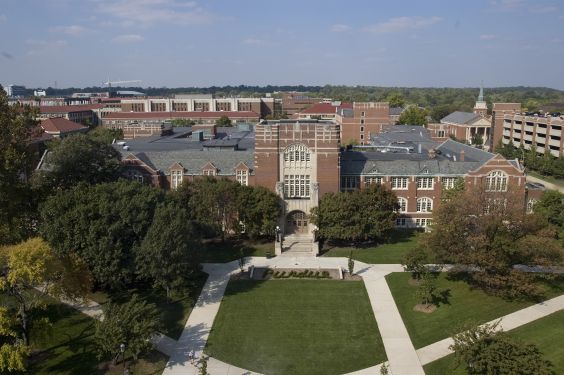Background
With rising energy prices and increased focus on efficiency, the synthesis and design of energy-efficient processes for any separation application is a major challenge for a practicing engineer. Our goal is to provide easy-to-use tools for the synthesis of optimal separation process while considering all possible separation unit operations.
Distillation has widespread use in the chemical industry and can be operated in either batch or continuous mode. Large-scale separation processes generally use continuous distillation and involve separation of more than two components in the mixture. For such energy-intensive multicomponent separations (e.g. crude distillation and ethylene distillation), we have generated novel continuous distillation schemes that can potentially lower the energy consumption by more than 10%. On the other hand, batch distillation is typically used for small-scale applications and we have developed novel batch distillation schemes that significantly lower batch time (by ~30%) while also lowering the energy consumption.
Our research group also focuses on emerging separation technologies such as membrane-based separation. Membrane-based separation is useful in the multi-billion dollar gas separation industry, however at present, membranes have a small market share in this industry. One reason for this is the lack of a systematic framework for identifying economically competitive and energy-efficient membrane cascades. We have developed a simple mathematical framework to meet this need.
In addition to synthesis of novel separation schemes, we have also developed heat integration approaches for improving the energy efficiency of the given process. Heat integration helps to utilize the available heat in a process to produce work rather than rejecting it, thereby leading to an improvement in efficiency.
Distillation is usually the method of choice for separating multicomponent mixtures in chemical plants. For large-scale multicomponent applications, we can choose from several continuous distillation sequences that all carry out the same overall process and are similar in capital cost and yet differ significantly in energy consumption. Until recently, the complete search space of sequences for separating any n-component mixture was not known. We have developed two mathematical frameworks for obtaining the complete set of all distillation sequences for multicomponent separations. These are boolean algebra based approaches that incorporate physical insights. We have also developed quick-screening tools to rank-list all the sequences with respect to a parameter that indicates cost and energy consumption. We have applied these frameworks to industrially relevant separations such as ethylene recovery and petroleum crude distillation. For these mature technologies, we have identified an array of sequences that can potentially reduce the energy consumption by 5 - 50%.
Batch distillation is useful for smaller-scale applications. The main factor affecting the economics of batch distillation is the batch time. We have developed novel "dual-column" and "divided-wall" batch distillation configurations that can potentially reduce the batch time by up to 30% while also reducing the energy consumption. We have demonstrated the efficacy of these novel configurations for benzene-toluene-xylene separation.
Additionally, we also focus on heat integration in distillation. In a conventional binary distillation column, heat is introduced at the reboiler (the highest temperature point) in the column and heat is rejected at the condenser (the lowest temperature point). With increased emphasis on energy efficient processes, it becomes important to re-utilize the heat rejected in the condenser. We have developed efficient heat integration approaches based on matching of temperature profiles that enable us to transfer the heat from the rectifying section of a binary distillation column to the stripping section.
Membrane-based gas separation processes have a huge potential for impact in applications such as natural gas processing, air separation and carbon dioxide capture from flue gases. To produce high amount of high purity products for such applications, a cascade of multiple stages is needed. Our research aims to formulate the much-needed framework for the design of low-cost energy-efficient membrane cascades.
To achieve this objective, we devised an approach using non-linear optimization methods while incorporating constraints to ensure that exergy losses are minimized. Minimizing the exergy losses helps to ensure that the cascade is thermodynamically the most energy-efficient. The optimization procedure employed a two-step algorithm, with the first step using a stochastic method to identify a feasible initial guess in the optimal basin. The second step employed a sequential quadratic program to converge on the optimal solution starting from the initial guess. The approach was implemented computationally on a MATLAB ® platform using a mathematical model to simulate a membrane separation unit. Further, the potential usefulness of this framework was demonstrated for nitrogen production from air.
Recent Publications
1. V. Shah and R. Agrawal, A Matrix Method for Multicomponent Distillation Sequences, AICHE Journal, DOI: 10.1002/aic.12118
2. A. Giridhar and R. Agrawal, Synthesis of distillation configurations: I. Characteristics of a good search space, Computers and Chemical Engineering, 34, 1, 73 -83 (2010)
3. A. Giridhar and R. Agrawal, Synthesis of distillation configurations: II. A search formulation for basic configurations, Computers and Chemical Engineering, 34, 1, 84 -95 (2010)
4. R. Noble and R. Agrawal, Separations research needs for the 21st century, Industrial and Engineering Chemistry Research, 44, 9, 2887-2892 (2005)
5. R. Agrawal, Separations: Perspective of a process developer/designer, AICHE Journal, 47, 5, 967-971 (2001)
|
 School of Chemical Engineering
School of Chemical Engineering

 >
> School of Chemical Engineering
School of Chemical Engineering